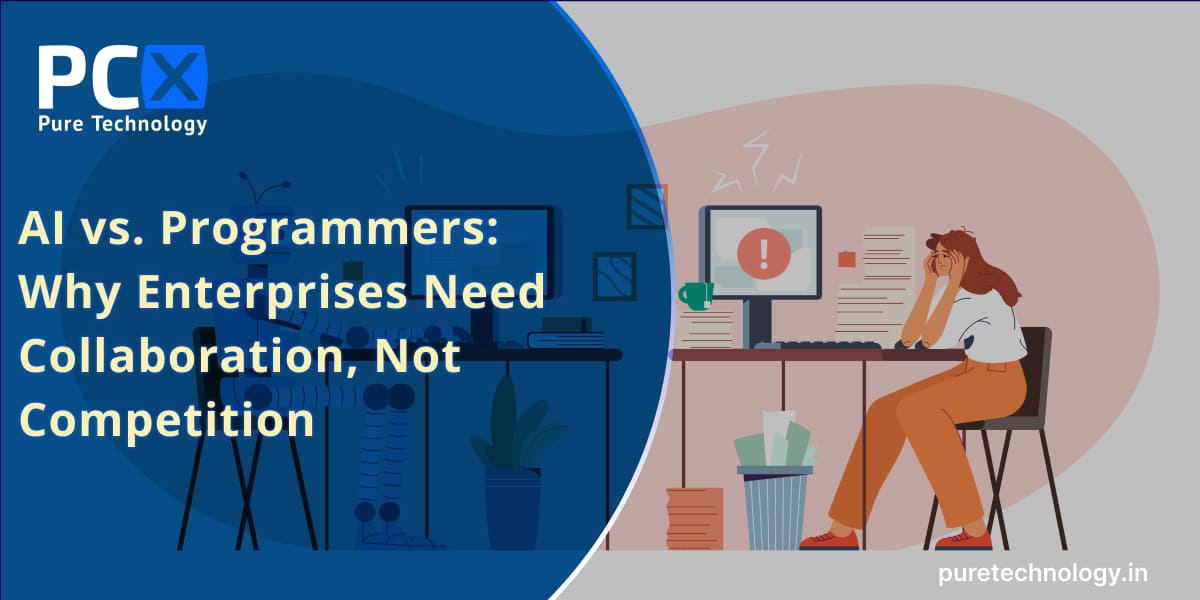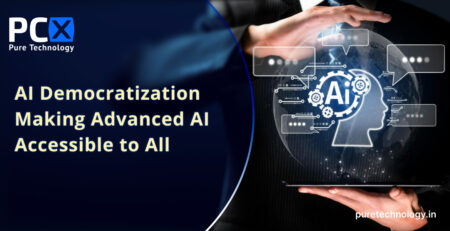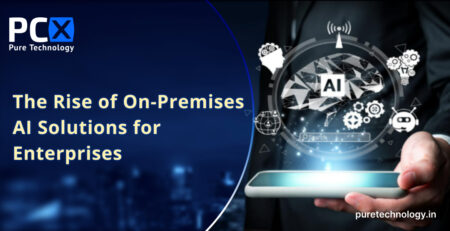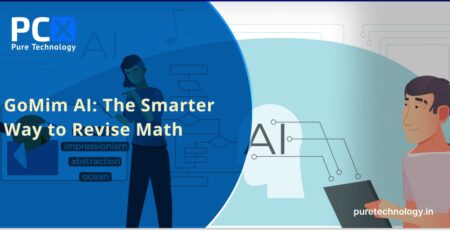AI vs. Programmers: Why Enterprises Need Collaboration, Not Competition
The debate around “AI vs. programmers” has gained momentum in recent years, fueled by the rapid rise of generative AI tools that can write, test, and even deploy code. Many fear that AI will replace software developers altogether. But the truth is far more nuanced.
For enterprises, the conversation shouldn’t be about replacement — it should be about reinforcement. AI isn’t here to outcode humans; it’s here to amplify human creativity and accelerate digital transformation.
This article explores why the “AI vs. programmers” argument misses the real point — and how forward-thinking enterprises can leverage AI to unlock new levels of innovation and efficiency.
The Misconception: AI Will Replace Programmers
The fear of AI taking over programming jobs largely stems from demonstrations of tools like GitHub Copilot, ChatGPT, and Replit’s Ghostwriter, which can generate functional code in seconds.
However, these systems are assistants, not replacements. They lack the contextual understanding, architectural foresight, and ethical reasoning that experienced developers bring to software design.
While AI can accelerate code generation, only humans can truly define business logic, ensure compliance, and make design trade-offs that align with enterprise goals.
The Reality: AI Is a Force Multiplier for Developers
Rather than replacing programmers, AI is becoming their most powerful partner. By automating repetitive tasks, identifying bugs, and suggesting optimized solutions, AI allows developers to focus on creative problem-solving and strategic innovation.
Here’s how enterprises are already harnessing this collaboration:
- Code Generation & Refactoring
AI agents can generate boilerplate code, refactor legacy systems, and optimize performance — dramatically reducing development time. - Automated Testing
Machine learning algorithms can generate test cases, detect vulnerabilities, and improve software reliability faster than manual processes. - Documentation & Knowledge Management
AI-powered systems automatically generate documentation and track version histories, ensuring better project continuity. - Enhanced Learning & Onboarding
Junior developers can use AI tools as on-demand mentors, shortening the learning curve and improving overall team productivity. - Predictive Project Management
AI models analyze delivery timelines, identify potential bottlenecks, and recommend adjustments to keep enterprise projects on track.
Why Enterprises Should Encourage AI-Human Synergy
For enterprises, the biggest value lies in AI-human synergy — a model where AI tools and programmers work together to achieve outcomes neither could accomplish alone.
AI brings speed, scale, and analytical precision, while humans provide creativity, strategy, and ethical judgment. Together, they create a development environment that is faster, smarter, and more adaptable.
This synergy enables:
- Accelerated time-to-market for software products.
- Lower development costs through automation of repetitive work.
- Enhanced innovation capacity by freeing developers to focus on problem-solving.
- Consistent quality assurance through continuous AI-driven feedback.
Addressing Enterprise Concerns
Despite the promise, enterprises must approach AI integration thoughtfully. Key considerations include:
- Data Security: Ensuring proprietary code and data remain confidential when using AI tools.
- Bias and Reliability: Validating AI-generated code to prevent flawed or insecure logic.
- Governance: Establishing clear guidelines for AI usage within development workflows.
- Skill Development: Training programmers to effectively collaborate with AI systems.
By embedding AI within a secure, well-governed, and ethical framework, enterprises can harness its full potential without sacrificing control or integrity.
The Future: Developers as AI Orchestrators
In the coming decade, developers will evolve into AI orchestrators — professionals who guide and supervise intelligent agents that handle parts of the development lifecycle.
Instead of writing every line of code, programmers will focus on defining intent, validating output, and aligning solutions with business goals. This shift will not only redefine software engineering but also transform enterprise efficiency.
Conclusion
The “AI vs. programmers” debate misses the point entirely. It’s not about competition — it’s about collaboration.
Enterprises that recognize this shift will lead the next wave of digital transformation, where humans and AI work side by side to create faster, smarter, and more resilient software solutions.
AI will not end programming — it will redefine what programming means.
Call us for a professional consultation












Leave a Reply